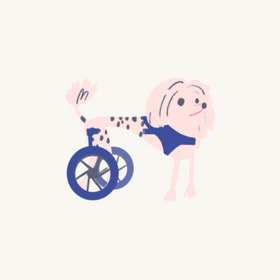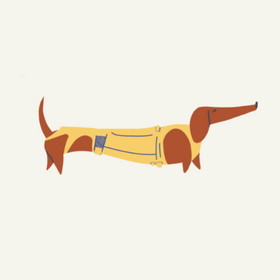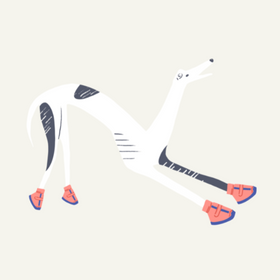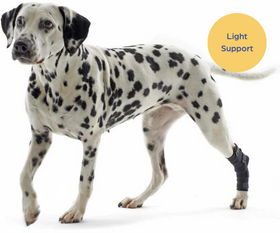01730 622544
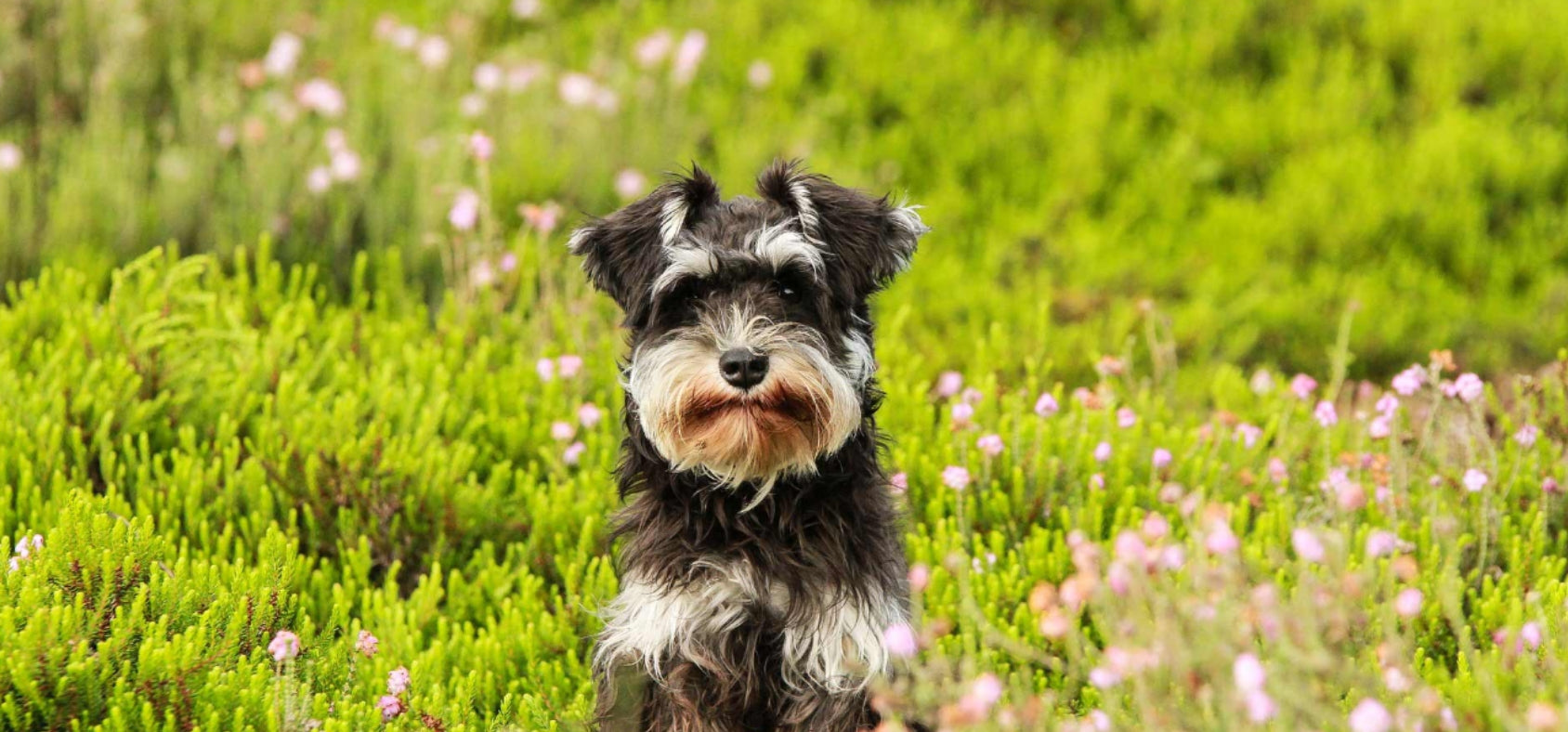
Changes to Expect with Your Senior Dog

As our dogs age, we need to give them a little more care and attention. Senior dog care may mean more gentle, regular exercise, better diet, and good quality supplements like Winstons or Glycanaid. We may find our older dogs need a little help walking, so using a walking support harness, like the Help ‘Em Up Harness, can be helpful. These are just a few of the senior dog products which Zoomadog recommends for an elderly dog.
Of course puppies are wonderful, but the soul of an older dog is very special too. As your canine companion enters their golden years, it may seem more of a challenge to keep them comfortable. Caring for elderly dogs is an opportunity for you to show your dog how much you love them. Understanding what’s happening in an ageing dog’s mind and body empowers you to know the little lifestyle shifts which will make a world of difference to them, keeping them as happy and healthy for as long as possible.
Here are the 7 main changes you can expect to see in your senior dog, and how you can help ease their transition into old age.
1. Stiffer, Achier Joints
Getting stiffer in their golden years is part of the ageing package for almost every senior dog. By the time a dog reaches 8 years of age, they have an 80% chance of having arthritis. This can mean more difficulty getting up, climbing stairs or jumping onto beds, and even simply walking around.
How to Help:
Realising that your beloved dog may be arthritic can seem daunting, but there are so many quick and easy things that can lessen your dog’s discomfort. Giving a high-quality joint supplement just once a day can be tremendously helpful, and gentle stretches can help increase mobility. A comfortable orthopaedic bed will help your dog’s body feel more comfortable when sleeping or resting.
2. Thinning, Graying Hair
Just like humans, senior dogs can start to show grey hair, especially around their eyes and muzzle. You might see a few white hairs as early as 1 or 2 years old. Your dog’s coat may also become thinner and duller. Their nails may become drier and more brittle. While this can be a normal part of the ageing process, it could also be a sign of a nutritional deficiency. Although your dog’s coat may thin with ageing, you shouldn’t be seeing any areas of complete hair loss or baldness.Likewise if your dog starts excessively grooming or showing patches of red, inflamed skin - this isn’t normal. If this is happening, you should ask your vet to check for Cushing’s Disease (hormonal), Alopecia X, or other dermatological issues.
Your dog’s skin may also be thinning, making it harder for the body to regulate its temperature. So your dog might start feeling the cold more than previously. Consider getting a coat or your sweater for colder, wetter, winter months, or chilly evenings. Keeping your dog warm will also help keep stiff, achy joints at bay.
How to Help:
Giving your dog a fatty acid supplement can help restore some of the shine and luster to your older dog's coat. They will also benefit from more combing and grooming, and will love the extra attention. If you notice extreme changes to their coat, be sure to see your veterinarian.
3. Dental Disease
Dental disease is unfortunately fairly common in older dogs. If not routinely removed, plaque can build up on the teeth to form tartar, which irritates the gums, leading to inflammation called gingivitis. If the tarter isn’t removed, the damage can lead to irreversible periodontal disease, which can cause loose teeth, abscesses, and bone loss or infection. Teeth themselves can also get weaker, so strong chews may be too much for your dog’s teeth now he’s older. If you can’t put an indent in a chew with your thumbnail, that shows it’s too hard for your dog.
How to Help:
Prevention is key when it comes to keeping your older dog’s teeth and gums healthy. A good dental routine consists of daily tooth brushing, regular visits to your veterinarian (which include an oral exam), and professional dental cleaning as advised. If you notice your dog’s breath becoming unbearably, unusually smelly, it’s essential to take a trip to the vet to rule out serious liver or kidney infections.
4. Weight Changes
As your dog gets older you may notice either weight loss or weight gain. Weight loss happens because your dog’s appetite is getting lighter, less lean muscle mass, or because their body’s finding it harder to digest their dog food. It’s normal for an older dog to lose a bit of weight but if you notice a significant weight loss in a short amount of time, or if your dog loses more than 10% of body weight in a year, take your dog to the vet to check there’s not something serious at play. Sudden weight loss can be caused by a variety of health issues in older dogs.
Conversely, as a dog ages, weight gain might also happen. This is because the dog’s appetite levels remain the same but metabolic rate, caloric needs, and activity levels have lessened.
How to Help:
If your dog’s lost a lot of weight, take them to the vet for a check-up. You’ll be asked about any other symptoms that you may have noticed. If your dog’s put on weight, research dog foods specifically designed for an older dog’s needs. Your older dog will need less calories, less fat, more protein, and more fibre. Excess weight is hard on your dog’s joints and organs, so getting them to an optimum weight will help them feel better for longer, as they grow older.
5. Loss of Hearing or Sight
Loss of hearing or sight can be hard to detect in your senior dog. Sometimes, it’s not until the advanced stages of sight or hearing loss that an owner notices anything is amiss. If your once-responsive dog seems to have been ignoring commands, is becoming more difficult to wake up, or gets spooked more easily, it may be because they’re losing their hearing. Or you may have noticed them bumping into furniture, being reluctant to go outside, particularly at night, or leaning against you to get around - these all might be signs that your dog’s losing their sight.
How to Help:
The first step if you suspect your dog has hearing or sight loss, is to take them to the vet for further investigation. For the ears, your vet will often give you instructions on best practice for ear care and cleaning, which if neglected can make matters worse. If spotted early, and your dog still has some hearing ability, you can start pairing commands with hand signals, which your dog will still be able to understand even when hearing is completely lost.
With sight-loss, again taking your dog to the vet for a diagnosis is essential. Some of the underlying causes of sight loss, such as diabetes or high blood pressure, will need to be managed with medication. Make sure that the layout of your house doesn’t suddenly change, and clear your dog’s usual routes through the house of any trip hazards.
You could also help your dog by getting a navigational aid, such as Muffin’s Halo, which helps your dog detect objects in the environment. Rex Specs are also recommended, they will protect your blind dog’s eyes from protruding sticks or sharp objects.
6. Increased Lumps and Bumps
As dogs get older they become more prone to developing lumps and bumps. Grooming your dog regularly is a good way to learn your dog’s body so you can pick up any changes quickly. Fatty lipomas are increasingly common as dogs age, and they’re often found on the chest and abdomen. They’ll likely feel squishy or firm.
How to Help:
These lumps and bumps are normally benign, but it’s always worth checking with your vet that any lump or bump isn’t actually a malignant tumour. They can get large and painful and may need surgical removal if they become too large.
7. Calmer Demeanour
When your dog was a puppy, everything was new, exciting, and couldn’t be explored fast enough. Senior dogs have learned more about the world, and are more content to slow down and take it easy. There are some common older dog behaviour changes about which it’s good to be aware. Even an easy-going, good natured dog can get a little more grumbly. Or your dog seems to need more sleep, get confused easily, or even anxious. These are all signs your dog is advancing in age. If they’re in pain or feeling stressed, this may affect their mood.
How to Help:
Your dog's older years are a time for the unconditional love of your relationship to shine through. Even though your senior dog may not be acting overly excited, it doesn’t mean that they’re not enjoying themselves. While your dog as a puppy may have strained at the leash on their daily walks, they may now be content to have a slow, quiet stroll down the block instead. Your senior dog may appreciate, and need, routine and consistency more than they did when they were younger - knowing what is happening and when, minimises any new anxiety they’re experiencing and gives them a sense of security. If, however, you’ve noticed a significant change in your dog’s personality, it is wise to take them to the vet for a check-up.
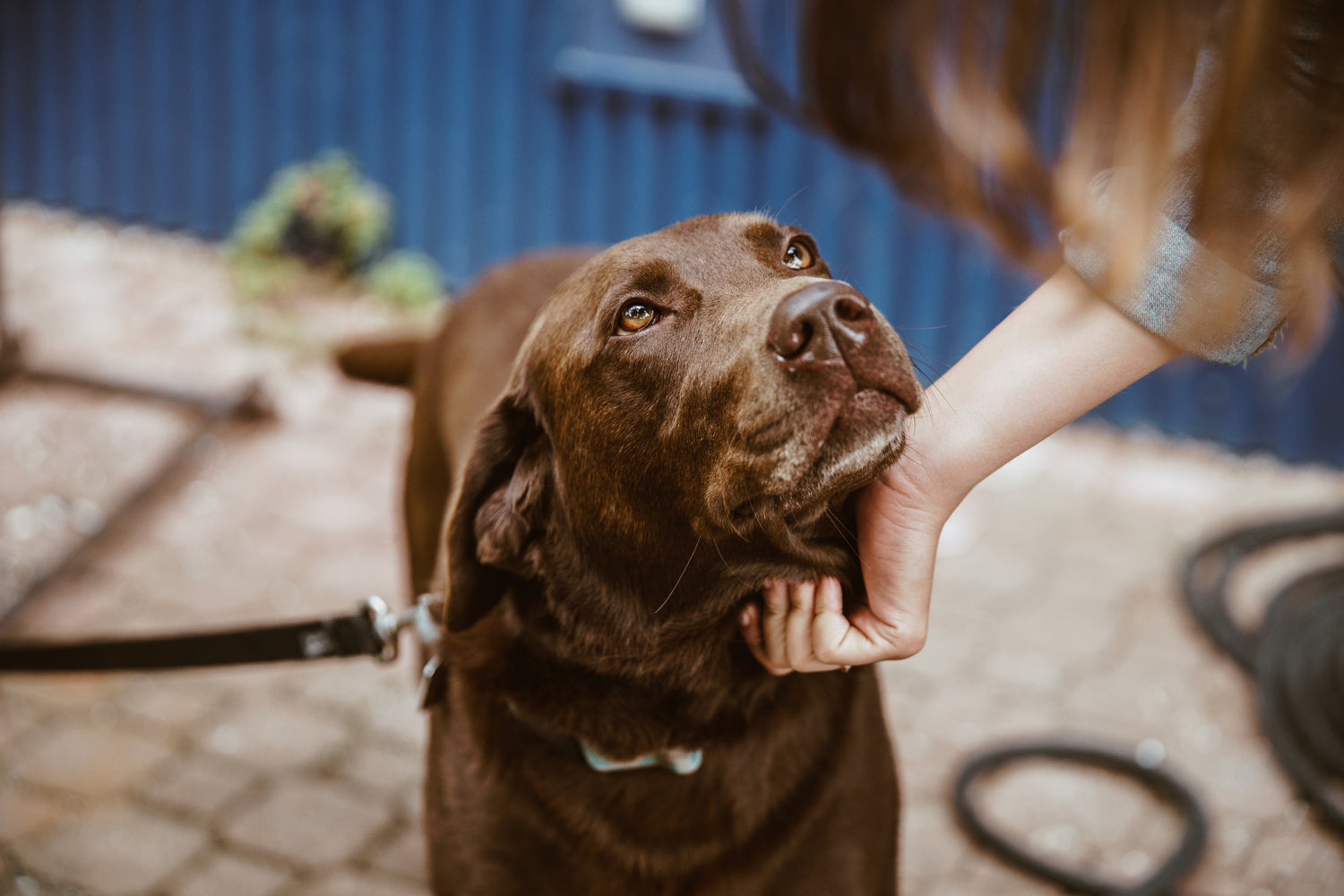
Looking for help with your dog?
We can help find the right solution for your dog
Feel free to give us a call on 01730 622544
or email us at woof@zoomadog.co.uk

